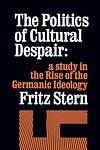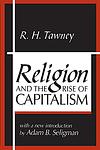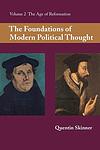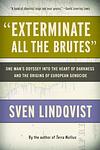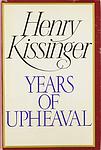The Greatest "Political, Europe" Books of All Time
Click to learn how this list is calculated.
This list represents a comprehensive and trusted collection of the greatest books. Developed through a specialized algorithm, it brings together 300 'best of' book lists to form a definitive guide to the world's most acclaimed books. For those interested in how these books are chosen, additional details can be found on the rankings page.
Genres
The "Political" category of books encompasses works that explore the theory, practice, and history of government and politics. These books may cover topics such as political ideologies, political systems, political institutions, political movements, and political leaders. They may also examine the relationship between politics and other areas of society, such as economics, culture, and international relations. Political books can be both informative and thought-provoking, offering readers insights into the complexities of the political world and the challenges of governing in a democratic society.
The "Europe" category for books encompasses a wide range of literature that explores the history, culture, politics, and geography of the continent. It includes works of fiction, non-fiction, and memoirs that delve into the diverse and complex societies of Europe, from the ancient civilizations of Greece and Rome to the modern-day European Union. This category also covers books that examine the impact of European colonialism and imperialism on other parts of the world, as well as the continent's role in global affairs. Overall, the "Europe" category offers readers a rich and varied selection of books that illuminate the many facets of this fascinating and influential region.
Countries
Date Range
Reading Statistics
Click the button below to see how many of these books you've read!
Download
If you're interested in downloading this list as a CSV file for use in a spreadsheet application, you can easily do so by clicking the button below. Please note that to ensure a manageable file size and faster download, the CSV will include details for only the first 500 books.
Download-
1. Orientalism by Edward W. Said
This book is a critical examination of Western attitudes towards the East, particularly the Middle East, and how these attitudes have shaped and continue to shape Western policies and perceptions. The author argues that the West has a long history of viewing the East as the "other," exotic and inferior, and that this view has been institutionalized through academic disciplines, literature, and media. This "Orientalism," as the author calls it, has served to justify colonialism and imperialism, and continues to influence Western attitudes and policies towards the East today.
-
2. Burger's Daughter by Nadine Gordimer
"Burger's Daughter" is a novel centered around Rosa Burger, a white woman in South Africa during the apartheid era. The narrative delves into Rosa's life and struggle to find her identity, while also dealing with the legacy of her parents who were anti-apartheid activists. This story provides a deep look into the political and social climate of South Africa during a time of racial segregation and oppression.
-
3. Eichmann in Jerusalem: A Report on the Banality of Evil by Hannah Arendt
This book is a thought-provoking exploration of the trial of Adolf Eichmann, a major organizer of the Holocaust. The author argues that Eichmann was not a fanatical ideologue, but rather an ordinary individual who simply followed orders and bureaucratic procedures, highlighting the terrifying potential for evil in any system that values obedience over personal responsibility. The concept of the "banality of evil" is introduced, suggesting that horrific acts can be committed by ordinary people under certain conditions.
-
4. Capitalism, Socialism, and Democracy by Joseph A. Schumpeter
The book provides an in-depth analysis of the interplay between capitalism, socialism, and democracy, arguing that capitalism is a catalyst for creative destruction and innovation, but also paves the way for socialism due to its inherent instability and tendency to create wealth inequality. It further suggests that democracy, while imperfect, is the best system to manage these economic systems. The author presents a unique perspective on the inevitable rise of socialism, not through revolution as Marx predicted, but through the legal and systematic erosion of capitalism by democratic means.
-
5. Decline of the West by Oswald Spengler
"Decline of the West" is a comprehensive historical and philosophical work that explores the rise and fall of civilizations. The author argues that every civilization has a life cycle, from birth to maturity and finally to decline. He suggests Western civilization is in its final stage of decline, comparing it to the end phases of the Greco-Roman civilization. The book also introduces the concept of 'pseudomorphosis', where a civilization is so deeply influenced by a previous culture that it suppresses its own authentic culture.
-
6. The Captive Mind by Czesław Miłosz
"The Captive Mind" is a thought-provoking exploration of the intellectual and moral dilemmas faced by artists and intellectuals living under oppressive regimes. Through a series of powerful and insightful essays, the author delves into the psychological and ideological transformations experienced by individuals who compromise their values and conform to the demands of totalitarianism. With a blend of personal anecdotes, historical analysis, and philosophical reflections, this book offers a profound examination of the complexities of intellectual freedom and the power of ideology.
-
7. The Rise and Fall of the Third Reich by William L. Shirer
This book provides a comprehensive history of Adolf Hitler's Third Reich, from its inception to its downfall during World War II. The author, an American journalist who reported from Germany and Austria during the Nazi era, uses firsthand accounts, interviews, and Nazi documents to detail Hitler's rise to power, the mechanisms of the Nazi state, and the events leading to and during World War II, including the Holocaust. The book concludes with an analysis of why the Third Reich fell and the aftermath of its collapse.
-
8. The Hedgehog and the Fox by Isaiah Berlin
"The Hedgehog and the Fox" is an essay that presents a philosophical and intellectual dichotomy based on a line from an ancient Greek poet, "The fox knows many things, but the hedgehog knows one big thing." The author uses this concept to categorize thinkers and writers into two groups: hedgehogs, who view the world through the lens of a single defining idea, and foxes, who draw on a wide variety of experiences and for whom the world cannot be boiled down to a single idea. The author uses this framework to analyze the works of various historical figures and philosophers.
-
9. The Engineer of Human Souls by Josef Škvorecký
The novel is a semi-autobiographical narrative of a Czechoslovakian writer who has become a professor at a Canadian university, teaching American literature. The narrative switches between his current life in Canada and his memories of the past in Czechoslovakia, including the Nazi occupation and the Communist regime. The book presents a complex portrayal of the life of an intellectual in exile and the challenges of cultural assimilation, while also exploring themes of love, politics, and the power of literature.
-
10. The Rise And Fall Of The Great Powers by Paul Kennedy
The book in question offers a comprehensive analysis of the economic and military factors that have shaped the relative power of nations from the 16th century to the late 20th century. It argues that the rise and fall of great powers are closely linked to their ability to manage economic resources and maintain military strength. The author examines the patterns of history to show how the overextension of an empire's resources often leads to decline, and suggests that managing the balance between wealth and power is crucial for the longevity of a great power. The book also provides insights into the potential future of global power dynamics by considering the implications of these historical patterns for contemporary superpowers.
-
11. The Politics Of Cultural Despair by Fritz Stern
This book is a critical historical analysis that delves into the intellectual roots of cultural pessimism in Germany leading up to the rise of National Socialism. It examines the works and influence of three prominent conservative critics from the late 19th and early 20th centuries, who lamented the perceived decline of traditional values and the erosion of social cohesion in the face of modernity and liberalism. The author argues that their reactionary critique of contemporary culture and their yearning for a return to an idealized past laid the groundwork for the ideological underpinnings of fascism, demonstrating how cultural despair can be manipulated into political extremism.
-
12. The Origins Of Totalitarian Democracy by J. L. Talmon
The book explores the historical development of the concept of totalitarian democracy, a political system that combines an official ideology with an authoritarian regime, claiming to represent the will of the people. It delves into the paradoxical nature of this form of government, which seeks to achieve a utopian ideal of democracy through undemocratic means. The author traces the roots of this phenomenon back to the Enlightenment and the French Revolution, examining the ideological underpinnings and the evolution of political thought that led to the emergence of totalitarian regimes in the 20th century. The work is a critical analysis of how revolutionary movements can devolve into oppressive systems that justify their actions in the name of democracy and the public good.
-
13. Religion And The Rise Of Capitalism by R. H. Tawney
"Religion and the Rise of Capitalism" is a comprehensive exploration of the historical relationship between the development of capitalism and the evolution of religious thought, particularly Protestant Christianity. The author delves into the moral and ethical dimensions of capitalism, arguing that its growth was significantly influenced by certain religious ideas. The book also discusses how religious beliefs have shaped economic systems and societal norms, and how these, in turn, have impacted religion.
-
14. The Foundations Of Modern Political Thought by Quentin Skinner
This book is a seminal work in intellectual history, offering a comprehensive analysis of the development of political thought during the Renaissance and the Reformation. The author meticulously examines the evolution of key political concepts and the context in which they arose, tracing the transition from medieval to early modern political theory. The text delves into the writings of influential thinkers and the impact of their ideas on the structure of government and the nature of individual rights, ultimately providing a detailed understanding of the origins of modern political ideologies and institutions.
-
15. The Burden of Our Time by Hannah Arendt
"The Burden of Our Time" is a profound exploration of totalitarianism and the nature of power. The author delves into the rise of authoritarian regimes in the 20th century, particularly focusing on the Nazi and Stalinist systems. The book examines the socio-political conditions that enable such regimes to seize power, and the mechanisms they use to maintain control. It also presents a philosophical analysis of the human condition, exploring themes of freedom, authority, and the public and private realms of life.
-
16. My Life by Leon Trotsky
This autobiography provides a detailed account of the life of a prominent Russian revolutionary and Marxist theorist. The book traces his early life, education, and political development, his role in the Russian Revolution and Civil War, his leadership of the Red Army, and his expulsion from the Communist Party and subsequent exile. It offers a unique perspective on key events in 20th-century history and an insight into the author's complex personality and intellectual development.
-
17. Nations And Nationalism by Ernest Gellner
This book presents a theoretical exploration of the concept of nationalism, the social conditions fostering it, and its role in the modern world. The author argues that nationalism is a product of industrial society, which necessitates a homogenous culture for communication and a centralized education system to sustain the industrial and economic structure. The work critically examines the origins and implications of nationalism, suggesting that it is not an ancient phenomenon but rather a relatively recent one that arises when a society transitions from agrarian to industrial. The author contends that nationalism serves to align the political and national unit, without necessarily corresponding to pre-existing ethnic or cultural identities, and is a political principle that holds that the political and the national unit should be congruent.
-
18. Say Nothing by Patrick Radden Keefe
This book is a gripping exploration of the Troubles in Northern Ireland, focusing on the disappearance of Jean McConville, a mother of ten who was abducted by the Irish Republican Army (IRA) in 1972. The narrative weaves together the stories of several key figures in the IRA, including Dolours Price, an IRA member who became disillusioned with the organization, and Brendan Hughes, a former IRA commander. The book delves deep into the political and personal complexities of the conflict, revealing the long-lasting trauma and moral ambiguities that continue to haunt those involved.
-
19. The True Believer by Eric Hoffer
"The True Believer" is a philosophical analysis of the nature of mass movements and the people who constitute them. The book argues that regardless of the specific cause, whether it be religious, political, or social, all mass movements are interchangeable and their followers are essentially the same. The author suggests that the driving force behind these movements is not the ideology itself, but rather the personal dissatisfaction and frustration of the individuals involved. The book also explores the lifecycle of mass movements, from their creation to their eventual dissolution.
-
20. Exterminate All The Brutes by Sven Lindqvist
The book is a profound exploration of European imperialism and the roots of genocide, blending travelogue, personal diary, and historical analysis. The narrative delves into the dark history of colonialism, examining how racist ideologies were used to justify the extermination and subjugation of non-European peoples under the guise of civilization and progress. Through a series of interwoven reflections and accounts, the author confronts the violence and atrocities committed by European powers in Africa and beyond, challenging readers to acknowledge and understand the brutal legacy of colonialism that has shaped the modern world.
-
21. Years Of Upheaval by Henry A. Kissinger
"Years of Upheaval" is a detailed and introspective account of the author's tenure as the U.S. Secretary of State during the tumultuous years of the early 1970s. The book delves into the complexities of international diplomacy and political maneuvering during a period marked by the winding down of the Vietnam War, the historic 1973 Yom Kippur War in the Middle East, and the consequential peace negotiations that followed. It also explores the intricate dynamics of U.S.-Soviet relations and the strategic arms limitation talks, providing a deep insight into the challenges and intricacies of Cold War diplomacy, all set against the backdrop of domestic political upheaval and the Watergate scandal.
-
22. From The Other Shore by Aleksandr Herzen
"From the Other Shore" is a collection of essays and aphorisms that delve into the author's reflections on social and political change during a period of intense upheaval in Europe. Written during the author's exile in the mid-19th century, the work critiques contemporary ideologies and the concept of progress, while exploring the nature of freedom, the plight of the individual in society, and the challenges of revolutionary movements. The author's insights are informed by his own experiences and observations, offering a unique perspective on the revolutionary spirit of the times and the quest for a just society amidst the tumult of historical transformation.
-
23. A Spare Life by Lidija Dimkovksa
"A Spare Life" is a poignant and thought-provoking novel that explores the lives of conjoined twin sisters, Zlata and Srebra, as they navigate the complexities of their shared existence in war-torn Macedonia. Told through the eyes of Zlata, the narrative delves into themes of identity, freedom, and the pursuit of individuality, as the sisters grapple with their physical and emotional bonds. With lyrical prose and a powerful portrayal of sisterly love, this novel offers a unique and compelling perspective on the human experience.
-
24. A Peace To End All Peace by David Fromkin
The book provides a detailed historical analysis of the Middle East from the onset of the First World War through to the early 1920s, focusing on how the decisions and actions of European powers, particularly Britain, led to the dismantling of the Ottoman Empire and the arbitrary redrawing of borders. It explores the diplomatic intrigues, strategic considerations, and often conflicting interests that shaped the modern Middle East, leading to a legacy of turmoil and conflict. The narrative critically examines the consequences of foreign intervention and the imposition of artificial state boundaries, shedding light on the origins of many of the region's ongoing struggles.
-
25. Thinking The Twentieth Century by Tony Judt, Timothy Snyder
This book is a profound intellectual history of the 20th century, presented through a series of engaging conversations between two eminent historians. It explores the major ideological currents of the century, including Marxism, socialism, liberalism, and fascism, while also delving into the personal experiences and reflections of one of the authors, who was facing a terminal illness during the discussions. The dialogue format allows for a dynamic exploration of how historical events, personal experiences, and intellectual debates have shaped our understanding of the modern world. Through these conversations, the book offers insights into the role of intellectuals and politicians in navigating the complex political landscapes of the 20th century, making it a compelling read for anyone interested in history, politics, and the power of ideas.
Reading Statistics
Click the button below to see how many of these books you've read!
Download
If you're interested in downloading this list as a CSV file for use in a spreadsheet application, you can easily do so by clicking the button below. Please note that to ensure a manageable file size and faster download, the CSV will include details for only the first 500 books.
Download









